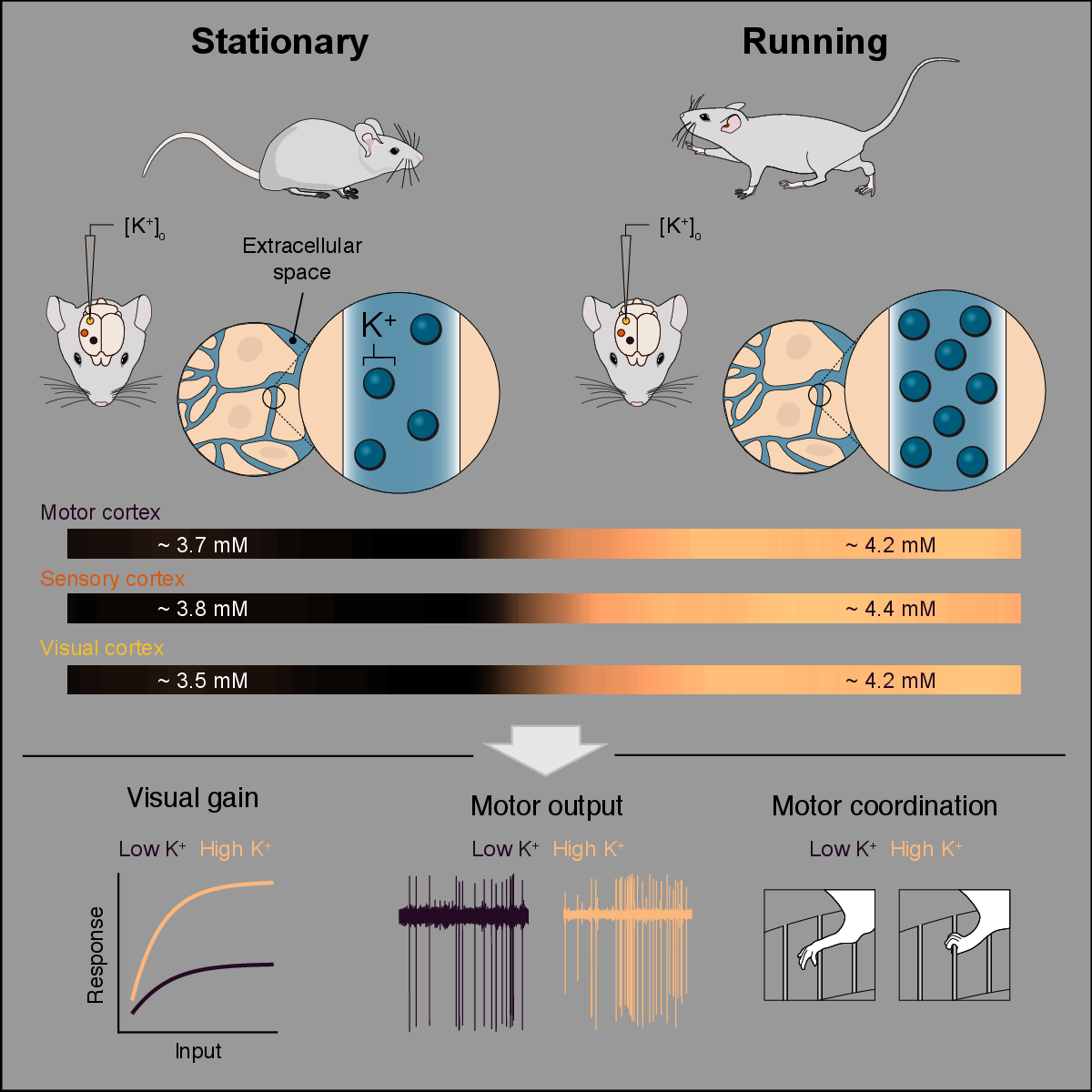New publication from Rune Rasmussen: Cortex-wide Changes in Extracellular Potassium Ions Parallel Brain State Transitions in Awake Behaving Mice
The brain’s response to sensory input is strikingly modulated by behavioral state, but the mechanisms governing this effect remain unclear. Rasmussen et al. show that behavioral transitions are accompanied by stereotypical cortex-wide changes in extracellular K+, capable of regulating sensory and motor processing through the modulation of neural activity.

Brain state fluctuations modulate sensory processing, but the factors governing state-dependent neural activity remain unclear. Here, we tracked the dynamics of cortical extracellular K+ concentrations ([K+]o) during awake state transitions and manipulated [K+]o in slices, during visual processing, and during skilled motor execution. When mice transitioned from quiescence to locomotion, [K+] increased by 0.6-1.0 mM in all cortical areas analyzed, and this preceded locomotion by 1 s. Emulating the state-dependent [K+]o increase in cortical slices caused neuronal depolarization and enhanced input-output transformation. In vivo, locomotion increased the gain of visually evoked responses in layer 2/3 of visual cortex; this effect was recreated by imposing a [K+]o increase. Elevating [K+]o in the motor cortex increased movement-induced neuronal spiking in layer 5 and improved motor performance. Thus, [K+]o increases in a cortex-wide state-dependent manner, and this [K+]o increase affects both sensory and motor processing through the dynamic modulation of neural activity.
The full report is available here.
